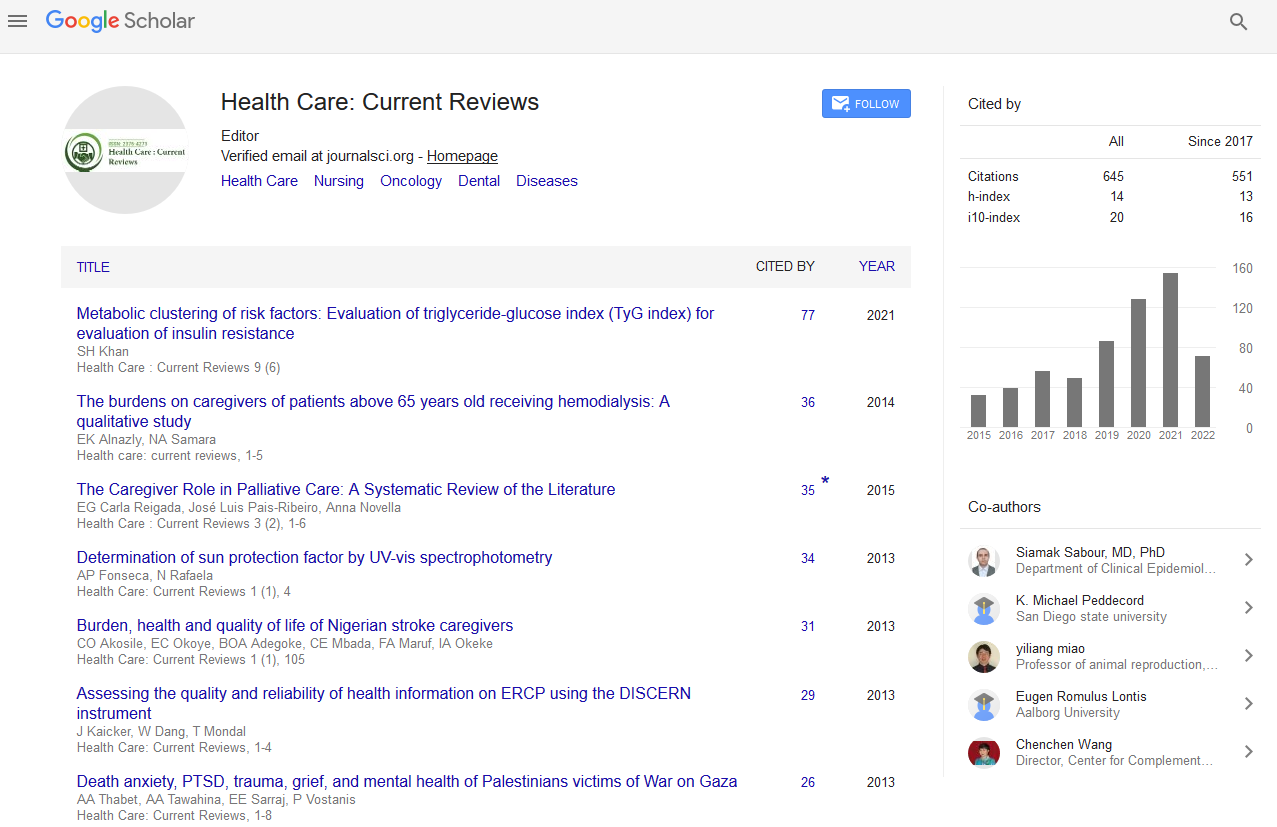PMC/PubMed Indexed Articles
Indexed In
- Open J Gate
- Academic Keys
- RefSeek
- Hamdard University
- EBSCO A-Z
- Publons
- Geneva Foundation for Medical Education and Research
- Google Scholar
Useful Links
Share This Page
Journal Flyer

Open Access Journals
- Agri and Aquaculture
- Biochemistry
- Bioinformatics & Systems Biology
- Business & Management
- Chemistry
- Clinical Sciences
- Engineering
- Food & Nutrition
- General Science
- Genetics & Molecular Biology
- Immunology & Microbiology
- Medical Sciences
- Neuroscience & Psychology
- Nursing & Health Care
- Pharmaceutical Sciences
Nursing student cognitive-affective changes with essential oils
18th World Congress on Clinical Nursing & Practice
September 21-22, 2018|Prague, Czech Republic
Dale Hilty,Kerry Fankhauser
Ohio State University, USA
Posters & Accepted Abstracts: Health Care Current Reviews
Abstract:
Aim: The aim of this preliminary educational intervention was to examine the effect of an essential oil presentation on Bachelor of Science in Nursing (BSN) students. Background & Method: Three published investigations (Marzouk et al., 2013; Najafi et al., 2014; Ni et al., 2014) used essential oils as an experimental intervention. Researchers found decreased anxiety, increased sleep quality and menstrual pain alleviation. Young (2011) outlines safety techniques, usages, implications and applications for single oils and blends. With the Ohio State University (OSU) Medical Center's use of essential oils in specific hospital units, this type of intervention may help prepare BSN students for RN employment. OSU Medical Center units report positive outcomes for patients, families, and staff. This study answers the question: Will nursing students (N=69) receiving an essential oil alternative-complementary intervention reveal changes on pre-/post-test Likert attitude questions from a 60-minute presentation? Results: Evaluation of this educational intervention was based on one quantitative outcome and two qualitative outcomes. First, quantitative data showed significance (p=0.001) for the five knowledge and comprehension pre-/post-test questions using the SPSS dependent t-test. Second, faculty members reported qualitative experiential learning while designing the presentation and measurement of student attitudes. Third, open-ended questions revealed student applications based on qualitative theme analysis. Conclusions: The quantitative and qualitative findings suggest the essential oil educational intervention had a positive impact on BSN student attitudes. The quantitative findings suggest the student levels of knowledge and comprehension increased substantially from the intervention. Based on the preliminary quantitative and qualitative findings, the educational intervention has been integrated into the classroom experience. Future investigations using correlational studies and experimental interventions will explore and evaluate the BSN student cognitive-affective changes in relation to self-care as well as BSN students??? ability to apply their knowledge and comprehension of essential oils to patient education in hospital-approved units.
Biography :
Dale Hilty is an Associate Professor at the Mt. Carmel College of Nursing. He received his PhD in Counseling Psychology from the Department of Psychology at The Ohio State University. He has published studies in the areas of Psychology, Sociology, and Religion. Between April 2017 and April 2018, his 10 research teams published 55 posters at local, state, regional, national, and international nursing conferences.
E-mail: dhilty@mccn.edu


